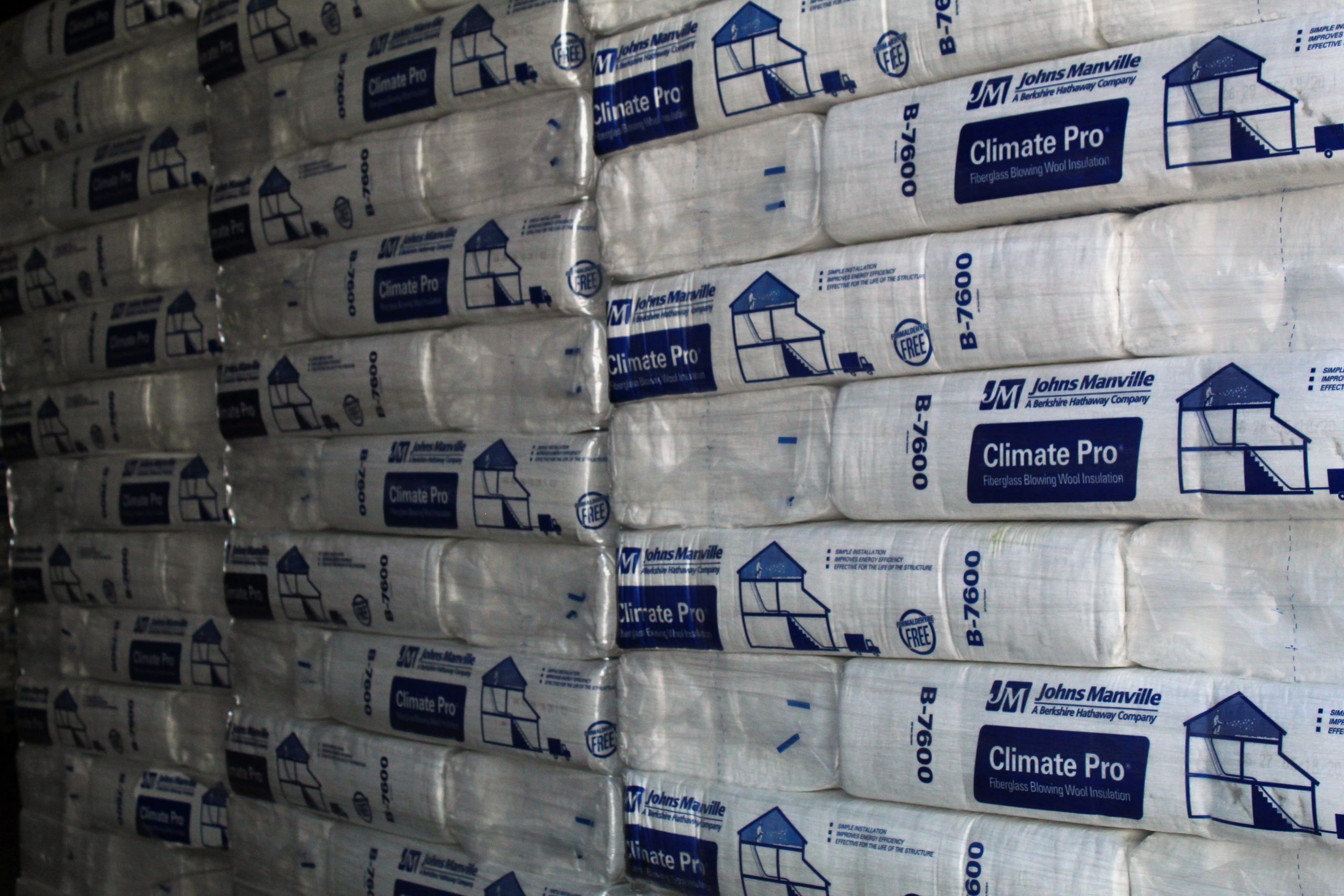Are you struggling to decide which kind of insulation to use for your project or home? If so, here is an easy guide to three types of insulation you can use along with their capabilities.
When beginning your insulation project, you must first consider where the insulation is going in your home. Insulation is used in the following types of spaces:
- Walls,
- Attics,
- Ceilings with unheated spaces,
- Basement walls,
- Floors above vented crawl spaces,
- Floors under unheated garages or porches, and
- Between interior walls.
Insulation is used in a variety of importance places within your home, so you want to make sure that you buy quality insulation to fit your needs. In order to do so, there are a few important factors that you should think about when choosing what type of insulation to use.
When choosing the correct insulation for your project, one of the first aspects you need to look at is the R-Value, which tells you how long a certain insulation material can resist heat. When the R-Value is higher, there will be better performance. But be careful, as some types of insulation can lose their R-Value if compressed to more than ½”. Another aspect you must look at is the density of the insulation; the denser the insulation is, the better it will be at sound proofing your space. If you are allergic to certain materials, make sure to check what kinds of materials at the materials used to make the insulation since the fibers from some types of insulation can become a problem for some people.
Now, let’s take a look at the three common types of residential insulation.
Fiberglass
Do you remember when you were a little kid and saw the cotton candy in the walls? Well, that “cotton candy” is fiberglass. Fiberglass is the most common type of insulation for two reasons: it is cheap, and it performs well. It is made of sand and recycled glass, and it does not require any other fire-resistant chemical. Fiberglass comes in batt, rolls, and as blown-in loose fill, and it is very good at maintaining the temperature of your home no matter the extent of heat or coolness.
The good thing about fiberglass is that there is a lot of flexibility when using it – you will be able to add more insulation to certain sections to compensate for the other parts that are not able to fit as much insulation. Fiberglass rarely loses its R-value even when it is compressed; it only loses the R-value when it is compressed over 0.5 inches, so it is a very sturdy and reliable product. Since fiberglass can get wet, try not to expose it to moisture or make sure it is completely dry before you enclose it in your space.
Spray Foam
Spray foam is probably the most striking insulation out of the three types of insulation, and it is made of a mixture of liquid chemical ingredients. When spray foam is sprayed onto the wall, it expands and fills in the spaces and cracks. There are two types of spray foam: opened cell and closed cell. Most experts do not recommend using open celled spray foam since it has a low R-Value and is not waterproof. Closed cell spray foam is better for energy efficiency and unlike open cell, this type is waterproof and has a high R-value along with more structural reinforcement. If you do choose spray foam, you will need to have it installed by a professional since it involves chemicals.
Mineral Wool
Mineral wool is currently making a comeback in the United States since it is both fire and water resistant due to its high R-value. Not only that but it is easy to cut, so if you run into obstacles in the wall such as outlets, you only need to make a simple cut to make the insulation fit. You also don’t need staples or wire to keep it in place like you do with other types of insulation, which makes the installment process much easier. Mineral wool is so dense that it is perfect for sound proofing, but it is also more expensive than other types of insulation.
Now that we have gone over the different types of insulation and their capabilities, it’s time to evaluate your space to decide which kind of insulation will work best with your project. If you have any questions about R-value or mineral wool, spray foam, and fiber glass, feel free to reach out to us by calling Jones Heartz at (303) 996-1444. Our employees have years of industry knowledge and we would love to help you with your project, including answering any questions you might have about insulation. To know which vendors we partner check out our page here. Good luck with your project!

